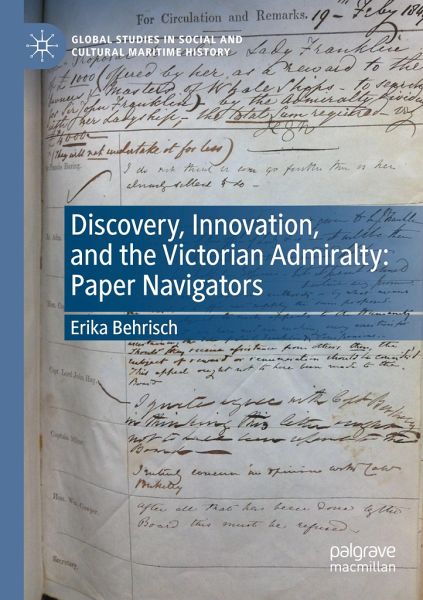
Discovery, Innovation, and the Victorian Admiralty
Paper Navigators
Versandkostenfrei!
Versandfertig in 6-10 Tagen
91,99 €
inkl. MwSt.
Weitere Ausgaben:

PAYBACK Punkte
46 °P sammeln!
This book examines the British Admiralty's engagement with science and technological innovation in the nineteenth century. It is a book about people, and gross misunderstanding, about the dreams and disappointments of scientific workers and inventors in relation to the administrators who adjudicated their requests for support, and about the power of paper to escalate arguments, reduce opinions, and frustrate hopes. From instructions for naval surveying to debates about rewards to civilians for inventions, Paper Navigators puts a wide range of primary sources in the context of public debates an...
This book examines the British Admiralty's engagement with science and technological innovation in the nineteenth century. It is a book about people, and gross misunderstanding, about the dreams and disappointments of scientific workers and inventors in relation to the administrators who adjudicated their requests for support, and about the power of paper to escalate arguments, reduce opinions, and frustrate hopes. From instructions for naval surveying to debates about rewards to civilians for inventions, Paper Navigators puts a wide range of primary sources in the context of public debates and explores the British Admiralty's engagement with, decision-making around, and management of questions of value, support, and funding with citizen inventors, the broader public, and their own employees. Concentrating on the Admiralty's private, internal correspondence to explore these themes, it offers a fresh perspective on the Victorian Navy's history of innovation and exploration and is a novel addition to literature on the history of science in the nineteenth century.














